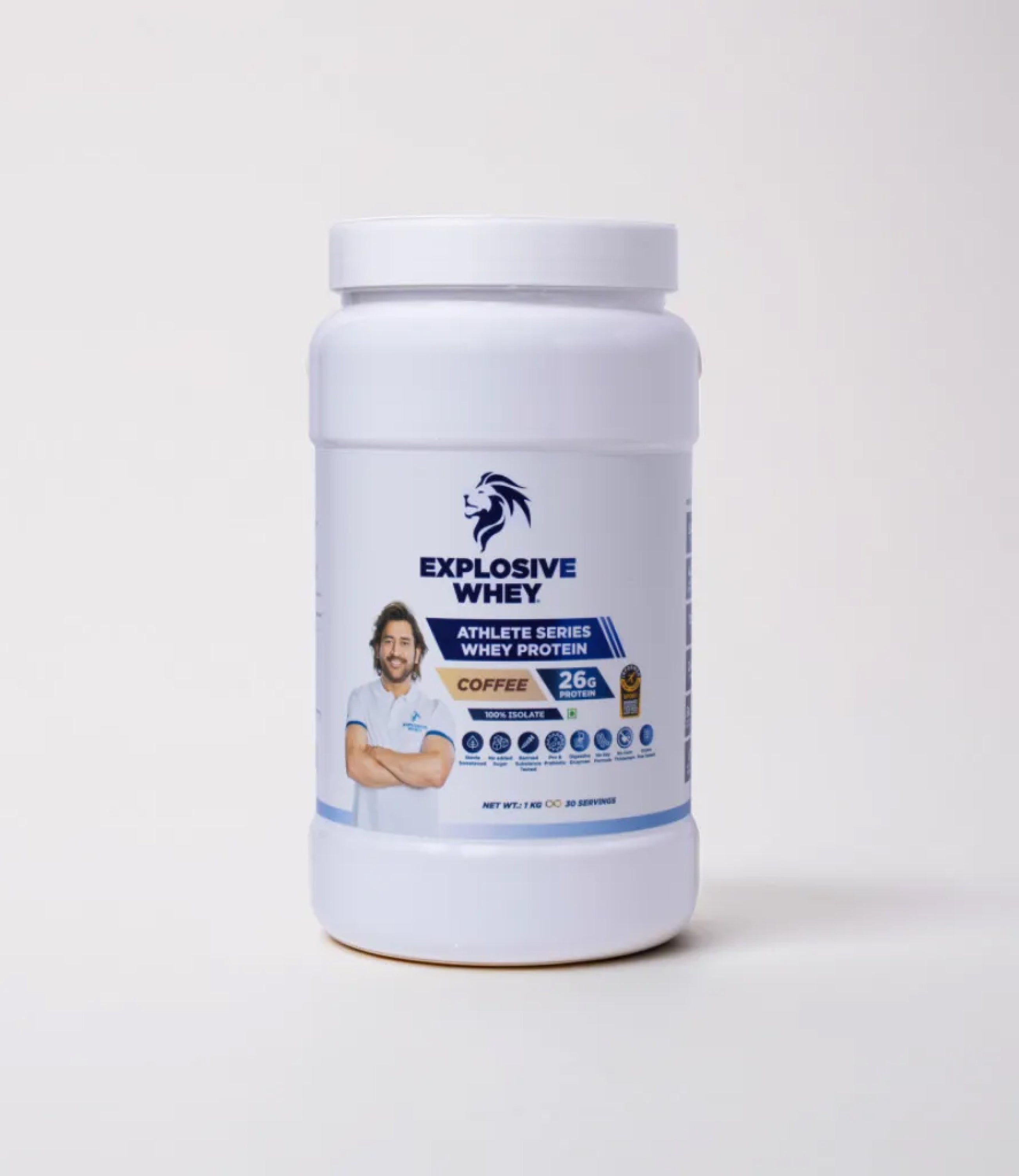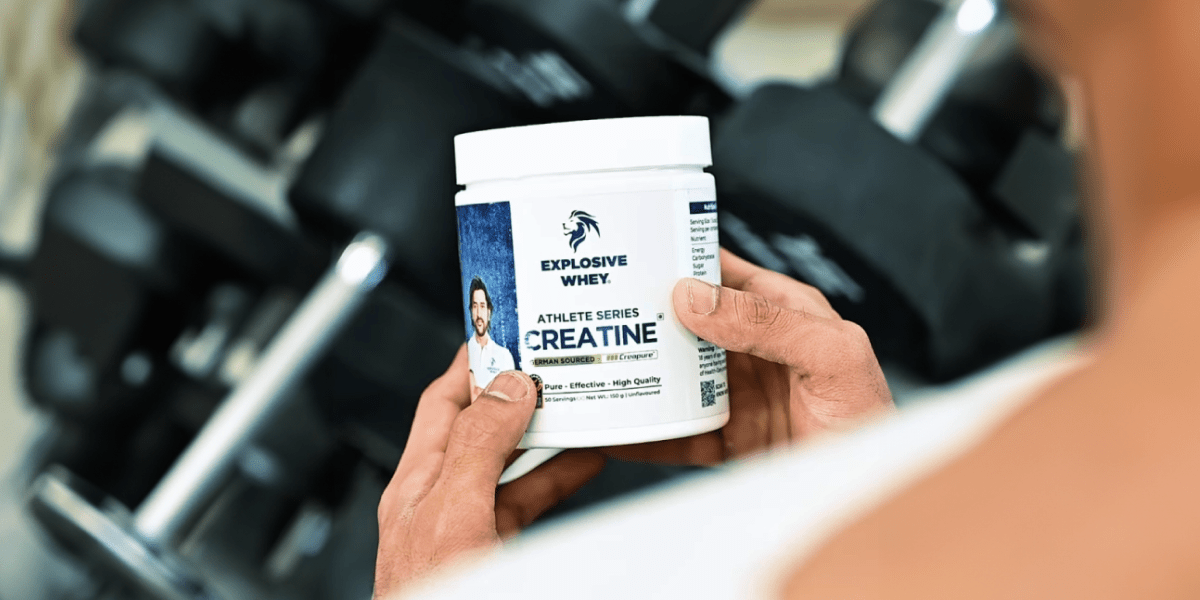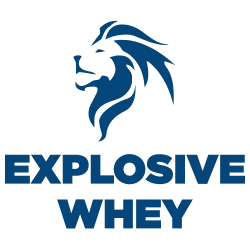Importance of Sports Nutrition for Tennis Players
Tennis is a demanding sport that requires players to run fast, hit hard, and keep playing for a long time. This means that what they eat and drink can make a big difference in how well they perform on the court. sports nutrition is important for tennis players. It gives them the energy to play well and helps their bodies recover after matches. Eating the right foods can make them stronger, faster, and healthier. This blog provides an overview of the essential sports nutrition required for tennis players.
Essential Nutrients for Tennis Players
Tennis players need a variety of sports nutrition to keep their bodies in top shape. These nutrients help them stay energetic, build muscles, and stay healthy. Eating a mix of different foods ensures that they get everything their bodies need to play their best.
Carbohydrates: The Primary Energy Source
Carbohydrates, or carbs, are like fuel for our bodies. They give tennis players the energy they need to play long matches and train hard. Without enough carbs, players can feel tired and weak. Foods like bread, pasta, fruits, and vegetables are good sources of carbs. Whole grains, like brown rice and whole wheat bread, are especially good because they provide long-lasting energy. Tennis players need to eat carbs before and after playing to keep their energy levels up.
Proteins: Building and Repairing Muscles
Proteins help build and fix muscles. After playing tennis, eating protein helps muscles recover and grow stronger. This is very important because tennis involves a lot of running, jumping, and hitting, which can strain the muscles. Good sources of protein are chicken, fish, eggs, beans, and nuts. Dairy products like milk, cheese, and yogurt also provide protein. Whey protein is also a great source of protein. Eating protein at every meal and snack helps tennis players keep their muscles strong and ready for action.
Fats: Essential for Endurance

Healthy fats give long-lasting energy. They help tennis players keep going during long matches. Fats also help protect the body's organs and keep the brain working well. Foods like avocados, nuts, seeds, and fish have healthy fats. Olive oil is another good source of healthy fats. It’s important to choose healthy fats over unhealthy ones, like those found in fried foods and snacks. Including healthy fats in the sports nutrition diet helps tennis players stay energized and focused.
Vitamins and Minerals: Ensure Overall Health
Vitamins and minerals are important for staying healthy. They help our bodies work well. For example, vitamin C helps the immune system, vitamin D helps the bones, and iron helps carry oxygen in the blood. Leafy green vegetables like spinach and kale are especially rich in vitamins and minerals. Eating a variety of colorful fruits and vegetables ensures that tennis players get all the vitamins and minerals they need.
Antioxidants: Reduce Oxidative Stress

Antioxidants protect our bodies from damage caused by hard exercise. They reduce inflammation and help speed up recovery. Berries, nuts, and dark green vegetables are rich in antioxidants. These foods can help neutralize harmful substances in the body called free radicals, which are produced during intense exercise. Eating antioxidant-rich foods helps tennis players recover faster and stay healthy.
Nutritional Diet for Tennis Players
A nutritional diet is a well-balanced diet that helps tennis players perform their best. It should include the right mix of carbs, proteins, fats, vitamins, and minerals. Planning meals and snacks around training and competition schedules ensures that players are properly fueled and can perform at their best.
Sample Meal Plan for Training or Competition

Here’s an example of what a tennis player might eat in a day:
- Breakfast: Oatmeal topped with fresh berries, a tablespoon of chia seeds, and a drizzle of honey. A glass of low-fat milk or a fortified plant-based milk.
- Mid-morning Snack: Greek yogurt with a handful of almonds and a piece of fruit, such as an apple or banana.
- Lunch: Whole grain wrap with grilled chicken, mixed greens, sliced bell peppers, and avocado.
- Afternoon Snack: An energy bar made with oats, nuts, and dried fruit, along with a sports drink or water.
- Dinner: Grilled salmon with quinoa, steamed broccoli, and a mixed green salad with olive oil and lemon dressing.
- Evening Snack: Cottage cheese with a handful of berries and a sprinkle of flax seeds.
Drinking plenty of water throughout the day is also a very important part of sports nutrition diet. Staying hydrated helps tennis players maintain their energy levels and recover faster after matches.
Tips for Meal Prepping and Planning Ahead
Planning meals helps tennis players eat the right foods at the right times. Preparing meals in advance and keeping healthy snacks ready can help them stay energized. Some tips for meal prepping include:
- Batch Cooking: Prepare large quantities of staple foods like grilled chicken, quinoa, and roasted vegetables at the beginning of the week to use in various meals.
- Portion Control: Use portion control containers to divide meals and snacks into balanced portions, ensuring the right mix of carbs, proteins, and fats.
- Healthy Snacks: Keep healthy snacks like nuts, seeds, fruit, and yogurt on hand to fuel up between meals and during long training sessions.
- Hydration: Always have a water bottle available and set reminders to drink water throughout the day. Drinking lots of water is important for good performance and fast recovery.
Sports Nutrition Supplements for Tennis Players
Sometimes, tennis players take sports nutrition supplements to get the extra nutrients they need. Supplements can be helpful, but it's important to talk to a doctor or nutritionist before taking them. This ensures that players get the right supplements for their needs and avoid any potential side effects.
ASW

Athlete Series Whey Protein (ASW) helps muscles grow and heal faster after exercise, so you don't feel sore for long. It's easy to use, making quick shakes for busy days. ASW also keeps you healthy by boosting your immune system and helps you do your best in sports by giving your body the power it needs.
Creatine
Creatine helps muscles be strong and powerful, which is good for quick movements. It is naturally found in the body and in foods like red meat and fish. Creatine supplements can improve performance in high-intensity, short-duration activities like sprinting and serving.
Omega-3
Omega-3 fatty acids reduce inflammation and keep the heart healthy. They are found in fatty fish, flaxseeds, chia seeds, and walnuts. Fish oil supplements are a good source of omega-3s and can help ensure adequate intake, especially for athletes who do not eat enough omega-3-rich foods.
L-glutamine
L-glutamine helps muscles recover and keeps the immune system strong. It is an amino acid that supports gut health and the immune system. Supplementing with glutamine can be beneficial during periods of intense training or when the immune system is compromised.
BCAA
BCAAs (branched-chain amino acids) help muscles recover and reduce muscle damage from playing. They include leucine, isoleucine, and valine, which are essential amino acids that cannot be produced by the body. Taking BCAA supplements can help preserve muscle mass and reduce fatigue during prolonged exercise.
Tips for Optimal Recovery After Matches
Recovery is just as important as training. Proper recovery practices help tennis players return to their peak performance levels more quickly. Implementing effective recovery strategies can reduce muscle soreness, prevent injuries, and improve overall performance.
Hydrate
Staying hydrated is essential for recovery. Drinking plenty of water and replenishing electrolytes lost through sweat helps prevent dehydration and muscle cramps. Players should aim to drink water regularly throughout the day and consider sports drinks or electrolyte solutions during and after intense matches.
Monitor Nutrition Timing
Eating a balanced meal or snack within 30 minutes after a match helps replenish glycogen stores and kickstart muscle repair. Timing is crucial for effective recovery. Post-match meals should include a combination of carbohydrates and proteins to restore energy levels and support muscle recovery.
Refuel with Essential Macros
After a match, tennis players should eat carbs for energy, proteins to repair muscles, and healthy fats for long-lasting energy. For example, a post-match recovery meal might include a turkey sandwich on whole grain bread with a side of sweet potato fries and a fruit smoothie.
Sports Nutrition Tips for Injury Prevention
Proper sports nutrition can help prevent injuries by supporting overall health and maintaining strong muscles and bones. By incorporating specific nutrients and foods into their diet, tennis players can reduce the risk of injuries and improve recovery times.
Learn more by exploring effective nutrition plans specifically designed for athletes.
Include Anti-inflammatory Foods
Foods like berries, nuts, and fatty fish have anti-inflammatory properties that can help reduce the risk of injuries and promote faster recovery. Anti-inflammatory foods can help manage inflammation and oxidative stress caused by intense physical activity.
Incorporate Magnesium-Rich Foods
Magnesium is important for muscle function and recovery. Foods like leafy greens, nuts, and whole grains are good sources of magnesium. Magnesium helps relax muscles and can prevent cramps and spasms. Including magnesium-rich foods in the sports nutrition diet supports muscle health and overall well-being.
Get Enough Calcium and Vitamin D
Vitamin D and calcium are important for healthy bones. Dairy products, fortified plant milks, and sunlight exposure can help ensure adequate intake. Calcium supports bone density and strength, while vitamin D enhances calcium absorption and bone health. Tennis players should aim to include these nutrients in their sports nutrition diet to support skeletal health.
Stay Consistent
Consistency in eating habits ensures that tennis players get the nutrients they need regularly to support their training and prevent injuries. A balanced sports nutrition diet with a variety of nutrient-dense foods provides the foundation for optimal health and performance. Players should aim to eat regular meals and snacks, stay hydrated, and adjust their sports nutrition diet based on their training and competition schedules.
Conclusion
Sports nutrition is very important for tennis players. Eating a balanced sports nutrition diet, staying hydrated, and using the right supplements can help them play better, recover faster, and stay healthy. By following these tips, tennis players can perform their best on the court. Proper nutrition supports the demands of the sport and helps players stay at the top of their game. By making informed dietary choices and prioritizing recovery, tennis players can optimize their performance and enjoy long, successful careers.
FAQs
Q1) How important is sports nutrition for tennis players?
Sports nutrition is crucial for tennis players as it fuels their performance, aids in recovery, and helps in injury prevention. A well-balanced sports nutrition diet ensures they have the energy and nutrients needed for intense training and matches.
Q2) Should tennis players take supplements?
Supplements can be beneficial for tennis players to meet their nutritional demands. Common supplements include whey protein, creatine, omega-3, L-glutamine, and BCAA.
Q3) What are the benefits of whey protein for tennis players?
Whey protein helps in muscle repair and growth, making it ideal for post-match recovery. It is a fast-digesting protein that supports quick muscle recovery and reduces soreness.
Q4) What is the role of BCAAs in sports nutrition?
BCAAs (branched-chain amino acids) help reduce muscle soreness and fatigue, support muscle protein synthesis, and improve recovery after matches. They include leucine, isoleucine, and valine, which are crucial for muscle health.










Leave a comment
This site is protected by hCaptcha and the hCaptcha Privacy Policy and Terms of Service apply.